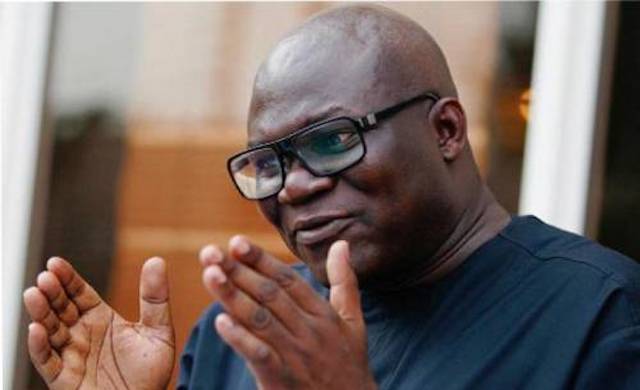- Abati questions Tinubu’s sons’ precedence over ministers during Qatar visit, highlighting concerns about nepotism and familial influence in governance
- He emphasizes the importance of individuals’ independence and meritocracy, urging self-sufficiency and integrity over reliance on familial connections
Reuben Abati, a journalist with Arise TV and former media aide to ex-President Goodluck Jonathan, has raised concerns about President Bola Tinubu’s sons, Seyi and Yinka, being placed ahead of ministers on a protocol list.
During a segment on Arise TV’s “The Morning Show,” co-hosted by Abati and fellow journalists Oseni Rufai and others, he questioned the roles and occupations of Tinubu’s sons, highlighting the discomforting scenario in which they were reportedly prioritized over ministers during Tinubu’s recent visit to Qatar.
Abati expressed his viewpoint, stating, “We must begin to question, What do the president’s children do for a living? I don’t know their exact ages, but considering their positions, by the time I was their age, I was already pursuing significant endeavours. I obtained a PhD at 24 without relying on any parental support.”
He criticized Tinubu for including Yinka and Seyi in his delegation to Qatar and, according to them, diplomatic precedence over his ministers.
“On March 2 and 3, 2024, the president’s sons Seyi and Yinka were part of the delegation that accompanied the president on a state visit to Doha, Qatar,” Abati remarked. “What I found particularly concerning was their placement on the protocol list ahead of ministers of the Federal Republic. What roles do they serve that justify such precedence?”
Abati emphasized the need for individuals to stand independently regardless of their family backgrounds. “People must reach a stage in their lives where they uphold their own dignity. It’s unacceptable for adults to rely solely on familial connections for relevance,” he asserted.
He further highlighted the plight of spouses and partners affected by such dynamics, stating, “Having a spouse who is unable to assert themselves due to dependence is embarrassing. Despite their privileges, these individuals need to exhibit self-sufficiency and integrity.”
Abati’s remarks underscore a broader discussion on the role of familial ties in governance and diplomacy, prompting reflections on the balance between meritocracy and nepotism in public service.

